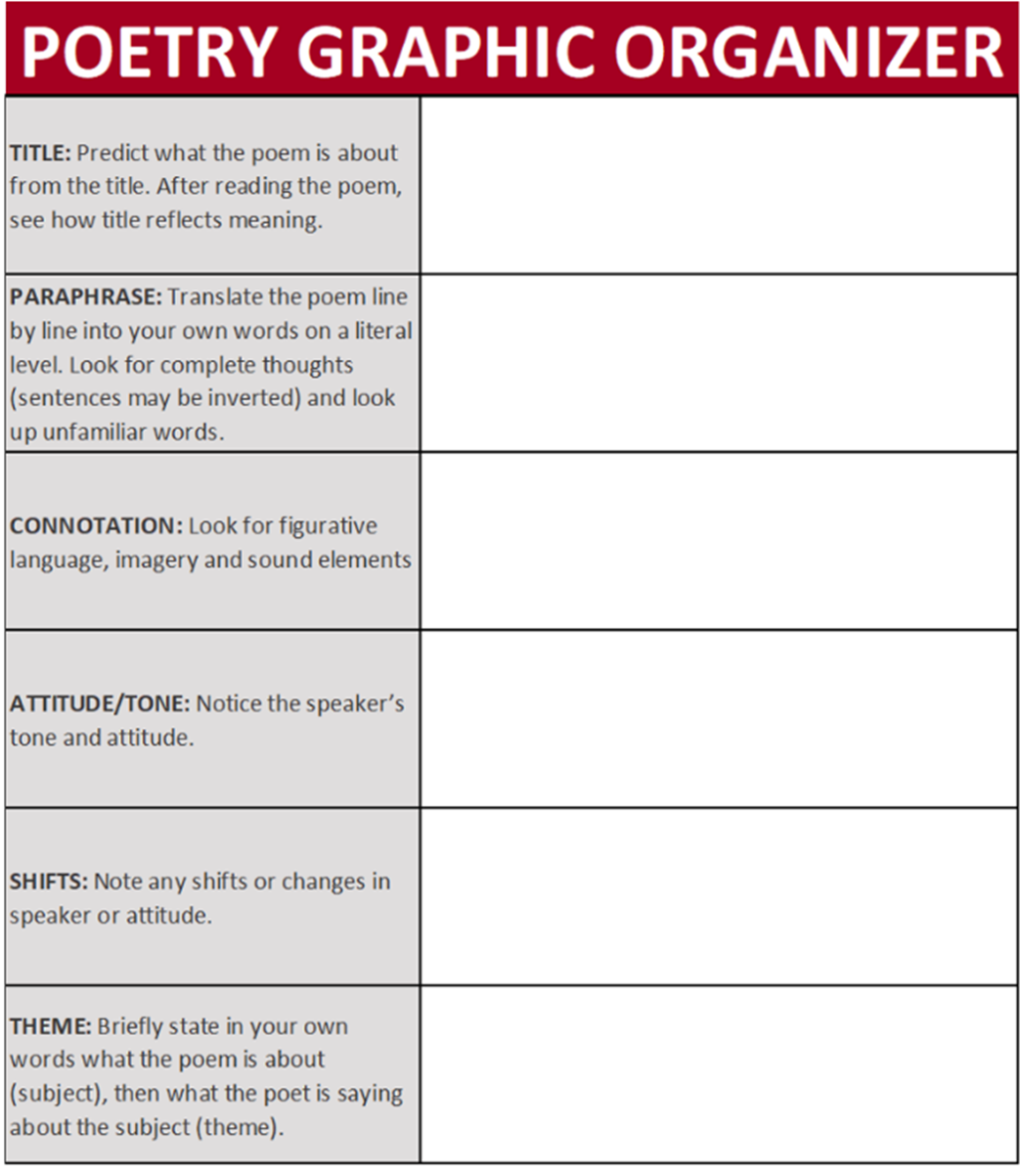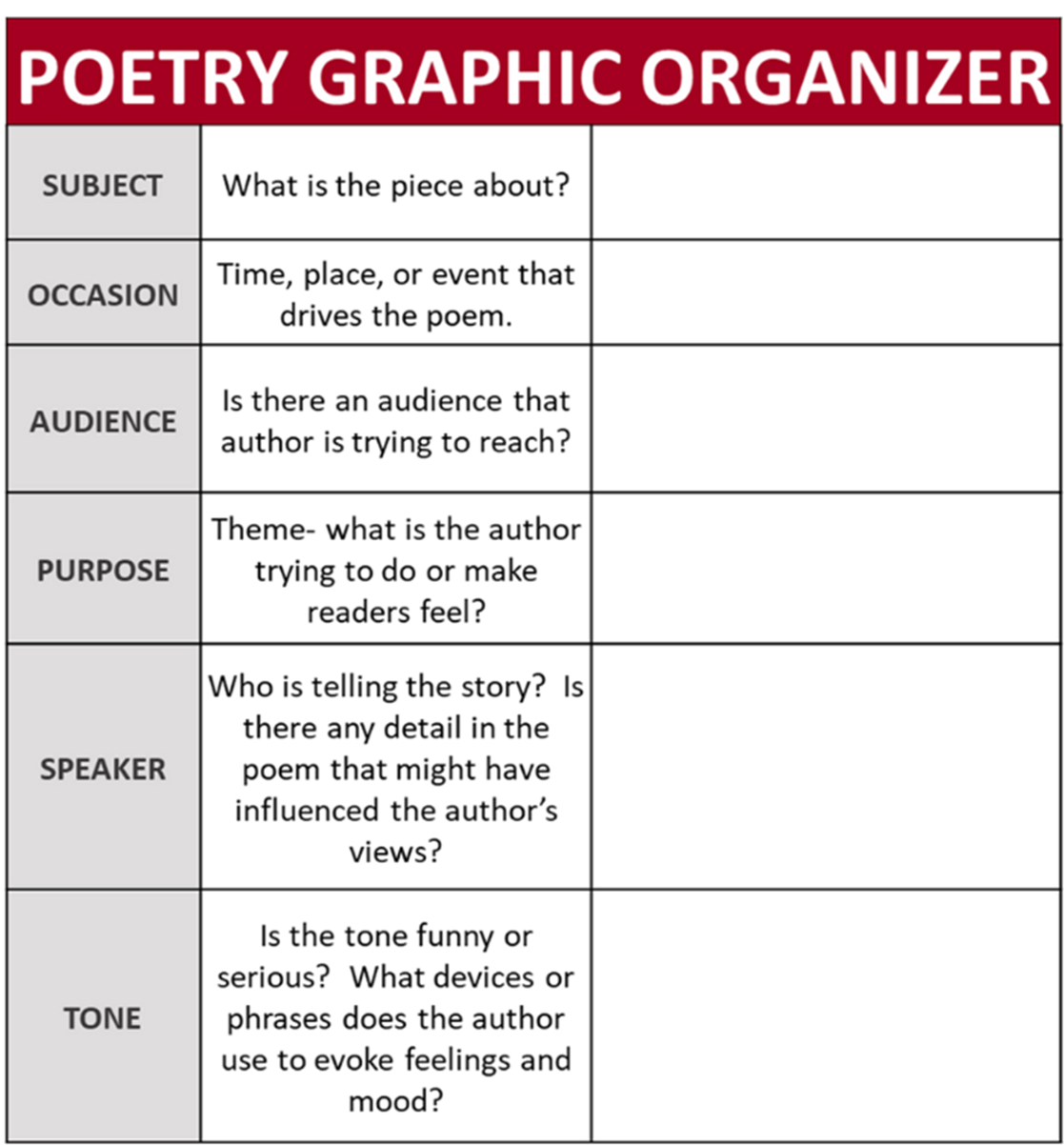Have a strategy for answering the questions.
By Joan Reissman, MCAS Maven
Poetry questions on MCAS can be very difficult for students. Past years’ results for poetry are varied. Students seem to do better with a contemporary poem. For example, in 2018 students were tested on a contemporary poem about a young man who had been jailed and how he used that experience to move his life in a positive direction. Students responded well to this poem and their success in answering the questions verified that: the average score was 89%. In 2017, however, students had to compare T.S. Eliot’s “The Love Song of Alfred J. Prufrock” to an excerpt from the novel “The Fault in Our Stars.” The average on these questions was 67% If the poetry excerpt on the practice test is any indication, students will be answering questions on a challenging poem this year. The practice test features the only selection without a comparison between two texts. The poem is an excerpt from “The Rubaiyat of Omar Khayyam,” a medieval poem interpreted and translated in the 19th century. The poem is generally considered a meditation on carpe diem (seize the day), a theme that might seem irrelevant to some students.
Answering the poetry questions on the MCAS doesn’t have to be an intimidating experience. Let’s look at some general tips for analyzing a poem on a standardized test. Handling poetry on a standardized test is similar to what you would do in class. Remember, you are analyzing a text that is short but may be very dense. Read the poem once. If it doesn’t make any sense to you, don’t panic. Take a deep breath and read it again slowly. Just like any other passage, go stanza by stanza and make short notes about what the author is trying to say. Use the digital notepad provided in the test to make the notes, so that you can go back to your ideas later.
What is the meaning of the poem? Always look at the title. This may indicate a major theme the poet is trying to express. What symbols stand out that represent important ideas? After you jot down an idea or two for each stanza, look for any important poetic elements that stand out such as imagery, symbols or figurative language. Also, look for comparisons, both literal and figurative. What unusual comparisons does the poet make to develop the theme?
Look at the choice of words: are words repeated? Look at the rhyme scheme: does it reveal any clues? Who is speaking in the poem? What is the speaker’s point of view? Does the point of view influence or reveal the major ideas that the poet is trying to express?
Other questions that you may want to ask are about theme and tone. What is the general tone? Is there any part of the poem that has a different tone? Is there a purpose for any shifts in tone or rhythm? What is the theme? Don’t worry if you can’t answer all of the questions. Try to get a feeling for the major focus of the poem and what the author is trying to say before you begin answering the questions on the exam.
Next, you should have a strategy for answering the questions. It can be helpful to read the questions for clues before you even begin reading the text. Skimming the questions can provide hints and improve focus. When you read a question, cover the answers. Look at the question and try to come up with your own answer first. Then see if any of the answer choices match yours. This strategy may be helpful.
Graphic organizers can be handy. Here are two that I think are useful. The first one is from www.readthinkwrite.org. It uses the mnemonic TP-CAST.
The other useful graphic organizer is SOAPST
Try analyzing a poem with both charts and see which one helps you organize your thoughts about the poem. If you have organized your information, it will be easier to answer questions or write an essay about the poem.
If you prepare ahead of time, the MCAS won’t be intimidating. Preparation will give you an edge. It will make you feel confident on test day and you will get a great score.
Final Pep Talk
On March 26th and 27th you will be taking the real test. Here are some last-minute tips and reminders to help you.
-
1. Go in with a testing plan. Practice strategies before test day. Do you want to read the questions before reading the passage? Do you want to use graphic organizers? Test day is not the time to experiment. Do your preparation and decide what works for you. And don’t forget to use your strategies.
-
2. Remember to use your digital notepad to jot down ideas for every paragraph. You are only allowed three pieces of scratch paper. If you want to go back to a passage before submitting your answers, the digital notepad will be available for your entire session, but the rules only allow you to have three pages of scratch paper without turning in old pages. You don’t want to be forced to turn in your notes if you go over your allotted amount of paper.
-
3. Bookmark any items you want to revisit but always put in your best guess. Make sure this strategy works for you. Some students wind up debating too much between answers and change the right answer to a wrong one. Take a multiple-choice practice test and answer some questions with your first instinct guess. Then do the other half by going back over the answers a second time. See what works best for you.
- 4. Use the glossary when words appear in the text with a dotted line underneath.
- 5. Don’t forget that essays have a word limit. It’s important to do some planning before you start writing your response so that you will have space to include all your ideas and the essential elements of a five-paragraph essay. It wouldn’t be a bad idea to review those elements.
- 6. Never submit your section before you are sure you’re finished. Submission is final. Once you submit your section, you cannot go back and change anything.
- 7. If you haven’t taken a practice test on the DESE website it’s important to try one before test date. Take one below your grade level for practice. Then take one at your grade level.
And finally, DO YOUR PREPARATION. Don’t think you can wing it. You can’t.
Good Luck!
Joan Reissman, the MCAS Maven, is a veteran Blended Learning Specialist with JFYNetWorks. She has been analyzing state curriculum standards and MCAS tests since 2000.







